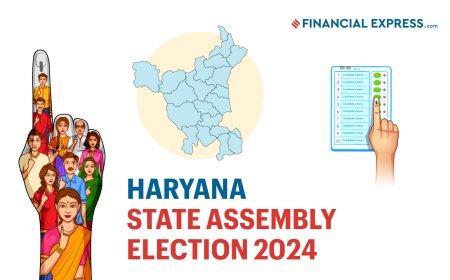India’s regulatory environment has long been compared to a circus, but not in the way you'd hope. Imagine a vibrant, colorful tent, with all the fanfare of a major event. But under that tent, the real spectacle isn’t acrobats or clowns entertaining the crowd; it’s a parade of government officials performing tricks with red tape, compliance rules, and endless forms — while the real performers, the entrepreneurs, are left struggling to juggle it all.
This is the circus that millions of business owners in India find themselves trapped in every day. With each new regulation, a fresh hoop to jump through is added to the already complex landscape. And the worst part? There’s no audience clapping for them; instead, they are faced with more paperwork, more rules, and more hoops to jump through — all in the name of “compliance.”
But who’s benefiting from all this? Is it the entrepreneurs? The ones actually driving the economy, creating jobs, and innovating? Or is it the ever-growing circus of government officials, consultants, and compliance officers, who seem to be thriving as they multiply the regulations, one act at a time?
The Government's Circus Act: Tricks and Distractions

Let’s start with the main performers in this circus: the government officials. In their bid to ‘help’ entrepreneurs, they have created an elaborate show of ‘solutions.’ We’ve got compliance acts, filing requirements, tax forms, annual returns, permits, and licenses galore. They come in all shapes and sizes, from the obscure and arcane to the borderline absurd. But when the curtains close, do we see results, or just a tangle of paperwork?
The government’s circus acts include things like the Goods and Services Tax (GST) system, which promised to simplify the indirect tax regime but has left businesses drowning in a sea of filings and audits. Then there’s the latest trend: "Ease of Doing Business" portals that seem to make things easier by adding one more layer of bureaucracy, disguised as ‘convenience.’
These officials’ main trick is distracting you with promises of ‘streamlined’ systems while they add more compliance hoops to jump through, each more complicated than the last. In the end, it’s the entrepreneurs who have to bear the brunt, spending more time and money on paperwork than on building their businesses.
The Entrepreneur: The Juggler in the Spotlight

Meanwhile, the entrepreneur — the one supposed to be at the center of this economic circus — is left juggling multiple flaming compliance documents while trying to balance the demands of their business. They’re not exactly part of the circus act, yet they’re forced to perform it every day.
In this bizarre game of compliance, entrepreneurs are expected to understand and comply with an overwhelming array of regulations, many of which are poorly communicated and constantly changing. From registering for GST to ensuring that every new hiring meets the demands of labor laws, entrepreneurs are constantly walking a tightrope, balancing growth against the risk of penalties or audits.
And what do they get in return for their efforts? Very little recognition or support. Instead of a standing ovation, they are met with more paperwork, more taxes, and more red tape. This circus isn’t about showcasing their talents — it’s about keeping them busy enough so that they forget why they started in the first place.
Who’s Really Winning the Circus?
As the entrepreneurs struggle in the spotlight, there's another group taking full advantage of the circus: the ever-growing army of consultants, tax advisors, and compliance officers. They’re the ones who have perfected the art of navigating India’s regulatory jungle and can often be seen advising businesses on how to ‘comply’ with the ever-changing rules.
While small business owners scramble to stay afloat, this industry flourishes, profiting from the complexity and confusion that the circus generates. They’re the ones benefiting from the ‘circus’ — advising companies on how to juggle regulations, file taxes, and avoid audits — all the while cashing in on the chaos.
In a way, they’re the real clowns here, creating a never-ending cycle of confusion where everyone else is expected to dance to their tune. The more complex the system, the more lucrative their business becomes. But does it help the entrepreneurs? Does it create a thriving business ecosystem? Or is it just a money-making racket for those who have learned to game the system?
Breaking Free from the Circus

What if there were no circus at all? What if entrepreneurs could focus on building and innovating rather than complying and navigating the maze of red tape? A truly free market, with minimal government intervention, could allow businesses to flourish without the constant distractions and performance acts imposed by the state.
India could truly benefit from a more straightforward regulatory framework, one that doesn’t just create hurdles but fosters an environment where businesses can innovate, grow, and thrive. Entrepreneurs shouldn’t have to perform tricks to get things done; they should be able to focus on their core objectives, whether that’s expanding operations, creating jobs, or serving their customers.
So, next time you hear about a new regulatory act or tax filing rule, ask yourself: Who's benefiting from this circus? Is it the government’s performers, or the entrepreneurs who are left to juggle it all?
Conclusion
The Great Indian Regulatory Circus is a show that has run far too long, with the government playing the ringmaster and entrepreneurs forced to juggle paperwork in the spotlight. But it doesn’t have to be this way. It’s time for the circus to pack up and for India to embrace a true free-market economy — where entrepreneurs are free to innovate without the shackles of overbearing regulations.
After all, the real clowns here aren’t the entrepreneurs. They’re the ones creating the future. The clowns are those profiting from a circus of compliance.























































